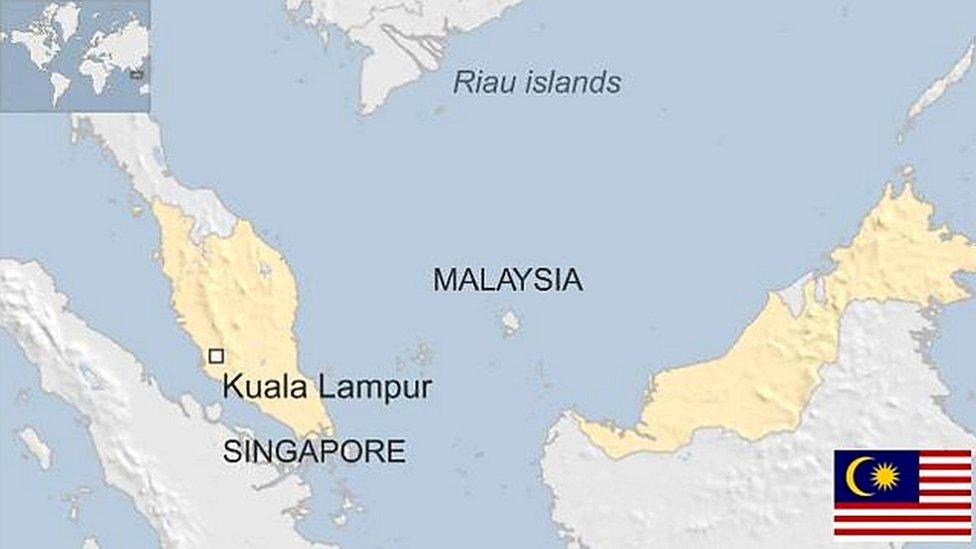Malaysian scandal highlights political funding problems
- Published
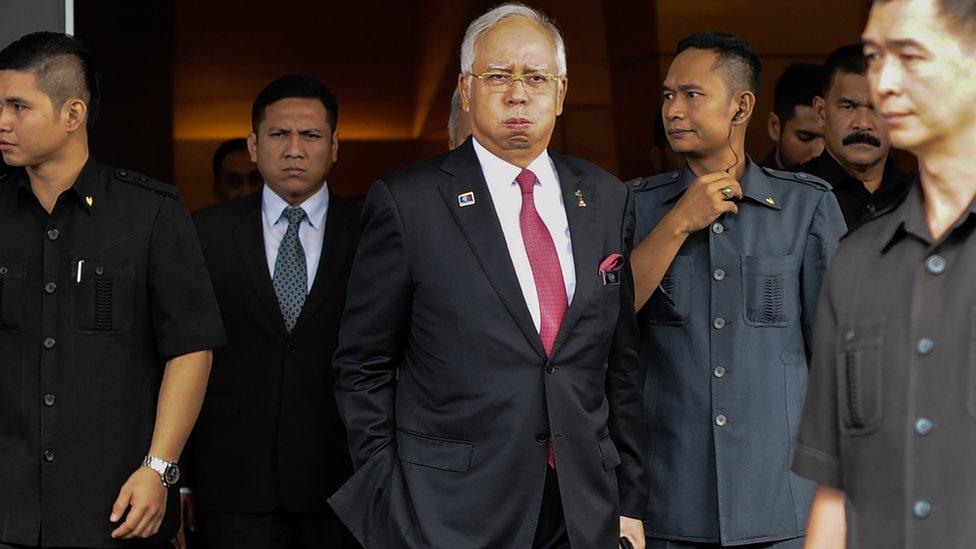
Despite being cleared of wrongdoing, the scandal has damaged Prime Minister Razak
When Malaysian politician Gan Ping Sieu first heard that Prime Minister Najib Razak had allowed hundreds of millions of dollars to be put into his personal bank account, he found it hard to take in the news.
"It was inconceivable. I couldn't believe it," he said.
Mr Gan's surprise is all the more remarkable because he is not a political novice. He has served as a junior minister in Mr Najib's coalition government.
He is not alone in his shock. Many Malaysians have expressed their astonishment at an endless stream of revelations involving the prime minister.
But months after the scandal first broke, Mr Najib is still in office.
He has refused to resign because he says he has done nothing wrong, an opinion supported by the attorney general, who cleared him of breaking the law.
1MDB: The case that's riveting Malaysia
But the scandal has at least done one thing: it has brought into sharp focus the lack of rules covering political financing in Malaysia.
"In all industries and in all sectors in Malaysia we have regulatory frameworks - apart from political funding," said Mr Gan, who is on a committee now looking into the issue. It is due to report its findings this summer.

The punk band Second Combat are some of the many Malaysians calling for the prime minister to resign
Different stories
The scandal involving Mr Najib is linked to a government-owned investment company called 1Malaysia Development Berhad, or 1MDB.
It was set by Mr Najib in 2009 to spur economic growth in Malaysia and is under the prime minister's direct control.
The company has been beset with financial problems, but those were overshadowed by explosive allegations made last July.
The Wall Street Journal said $700m (£490m) had been transferred from 1MDB into bank accounts under the prime minister's name.
Mr Najib denied the allegations, but over subsequent months his statements about the money seemed to change.
"Every time he tried to explain a different story came out," said Maria Chin Abdullah, the chairwoman of Bersih 2.0, an anti-corruption organisation that has called for Mr Najib to resign.
"First he said it was a donation; then he said it was an investment and now he says it came from an Arab donor. It really makes me angry. What does he take us for, fools?"
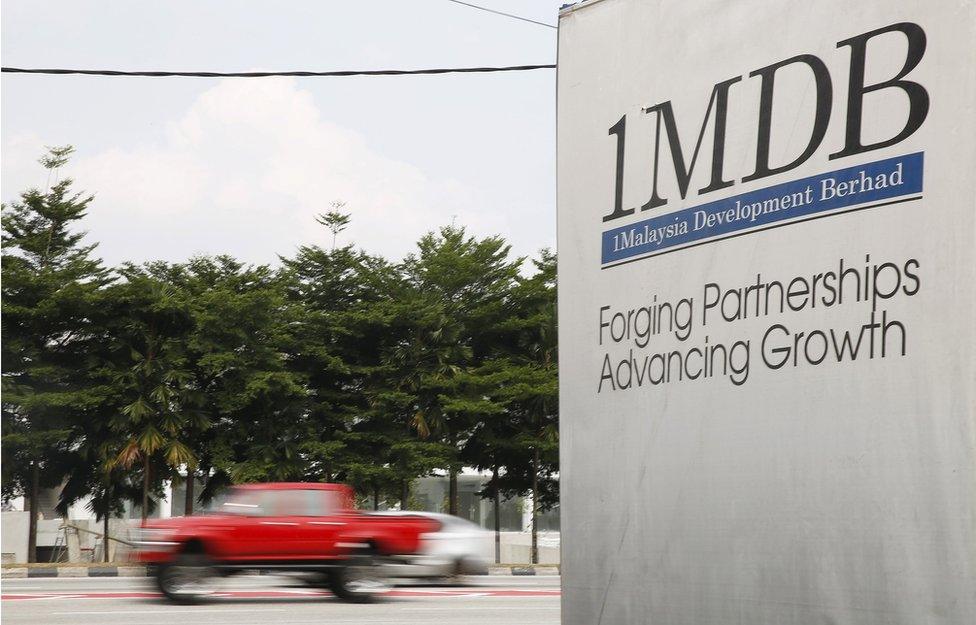
1MDB advertised itself as "advancing growth"
A broad spectrum of Malaysian society has expressed incredulity at the prime minister's explanations.
The Malaysian punk band Second Combat, who sing about corruption and injustice, are just one group of artists who have become involved in the debate about the prime minister.
They are so keen to get across their message that they spend a good deal of time on stage talking about politics with their audience.
"We just want him to step down and give other people a chance to rule," said Khairuddin Aziz, the band's longest-serving member.
Case closed?
But Mr Najib has clung on. In January, Malaysia's attorney general cleared him of any wrongdoing concerning the money.
The attorney general said that while $681m had been given to the prime minister, it had been donated by the Saudi royal family.
The money was apparently given to help Mr Najib and the ruling party, the United Malays National Organisation (Umno), win the 2013 general election. But accounts on this point vary.
According to the attorney general, $620m has been returned and as far as the prime minister is concerned the case is now closed.
But he has not just left that development to chance. Since the scandal first broke, Mr Najib has done several things to shore up his position.
He has got rid of rivals - the deputy president, Muhyiddin Yassin, was replaced after criticising the prime minister.
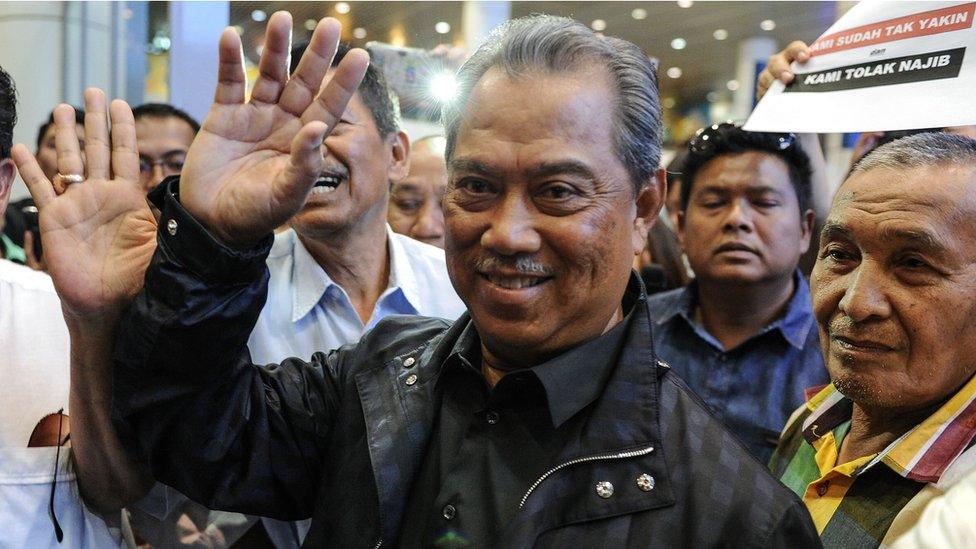
Mr Najib appears determined not to let rivals, like former deputy Mr Yassin, capitalise on his woes
Critics maintain Mr Najib has also undermined the institutions that could have revealed more about where the money came from and what it was used for.
Just after the first revelations broke, the prime minister appointed a new attorney general, removing the original one on health grounds.
"We are running a country like during the cavemen period," said Maria Chin Abdullah. "No laws, no principles, you just run it as you like - and it's run by one person."
The question at the heart of the scandal is just how such large sums of money can flow in and out of politics in Malaysia with little or no oversight.
Gan Ping Sieu said current regulations covered only what a candidate spent during the two weeks before an election, with each hopeful allowed to spend around 200,000 ringgit ($50,000; £35,000).
But money lavished on candidates by others, such as political parties, and outside this timeframe is not taken into consideration.
Even Mr Gan played the system when he stood as a state legislator. He admitted that friends would pay for meals to drum up support for his campaign. It was money that did not have to be accounted for.
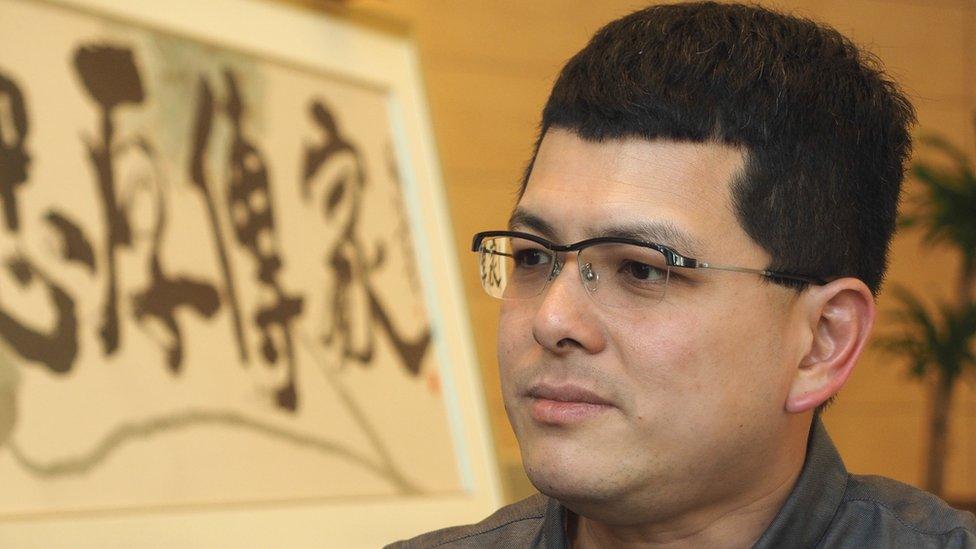
Dr Oh Ei Sun worked as the prime minister's political secretary. He says Mr Najib does not see himself as a corrupt man.
Money for coffins
Dr Oh Ei Sun, an analyst who once served as the prime minister's political secretary, revealed just how intertwined money and politics are in Malaysia.
Sometimes it can involve the handing over of relatively small sums of cash to political supporters in order to ensure their continued backing.
Paying for food and drink is one way to dispense money. Dr Oh said politicians might also have to stump up cash for unusual expenses.
"If your constituents' parents pass away and there's no money to buy a coffin, you need to buy one for them," he said.
Dr Oh remembers Najib Razak as a serious person who had wanted to reform Malaysia's political system when he took office.
But he said that plan was abandoned because the prime minister believed the economy needed greater reform, and he could not change both at the same time.
He believes Mr Najib does not see himself as a corrupt man.
The prime minister's dedication to political reform will certainly be tested this summer when the committee looking into political funding presents its report.
Mr Gan hopes it will lead to change, but he is not optimistic.
"Politicians are not very keen for political funding to be well regulated," he said.
In a country where money and politics are so connected, it is not hard to see why they might hold that opinion.
- Published30 January 2016
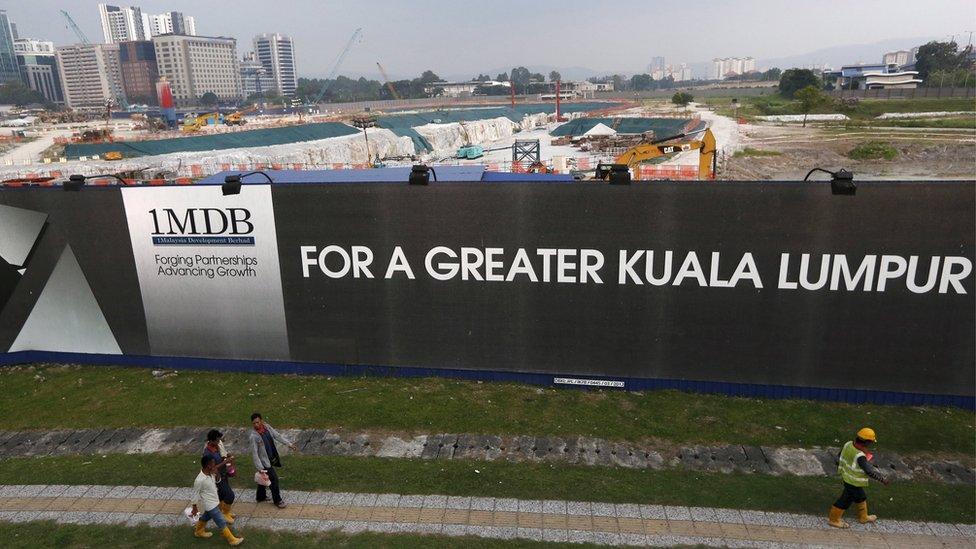
- Published27 January 2016
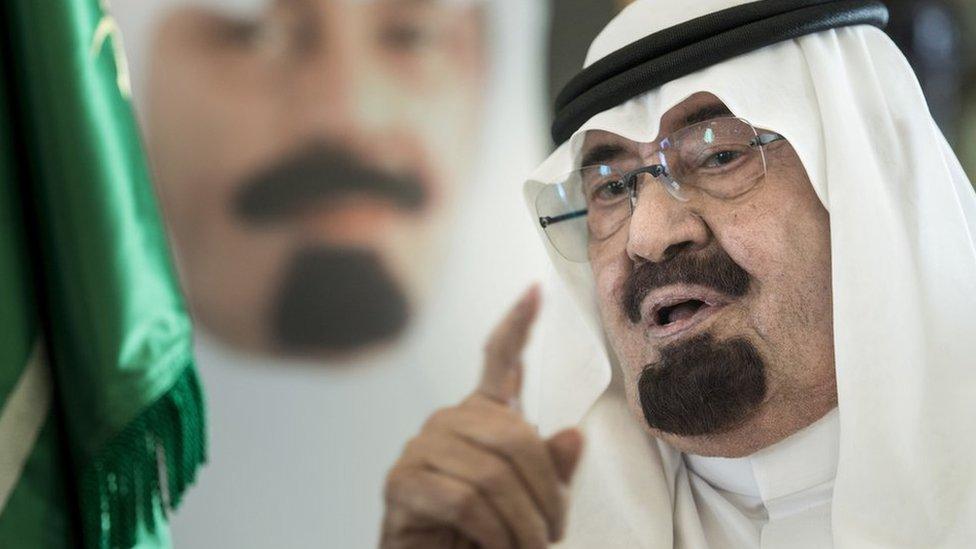
- Published26 January 2016
- Published22 July 2016
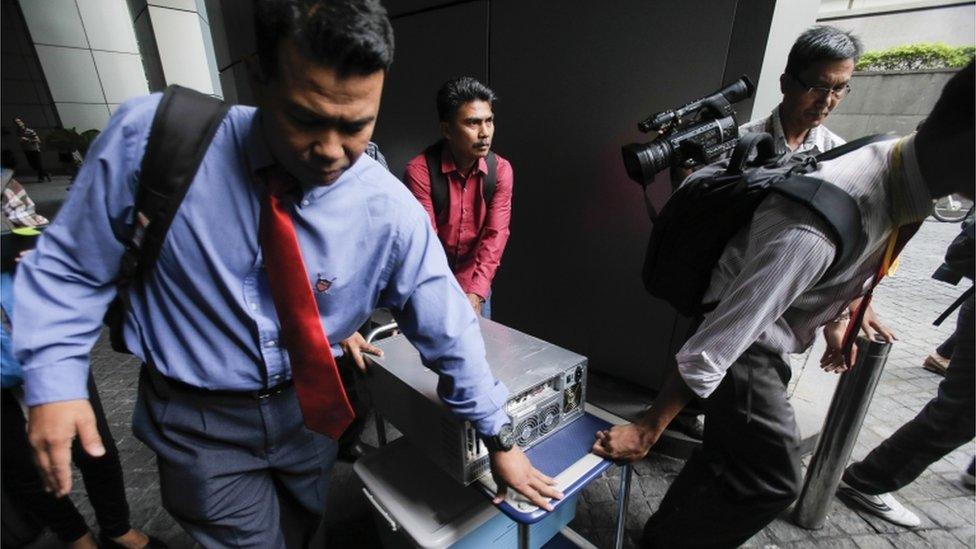
- Published28 July 2020
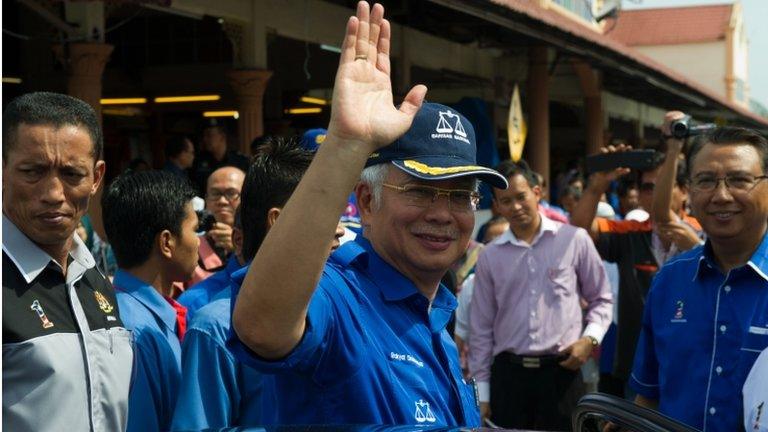
- Published19 May 2023
